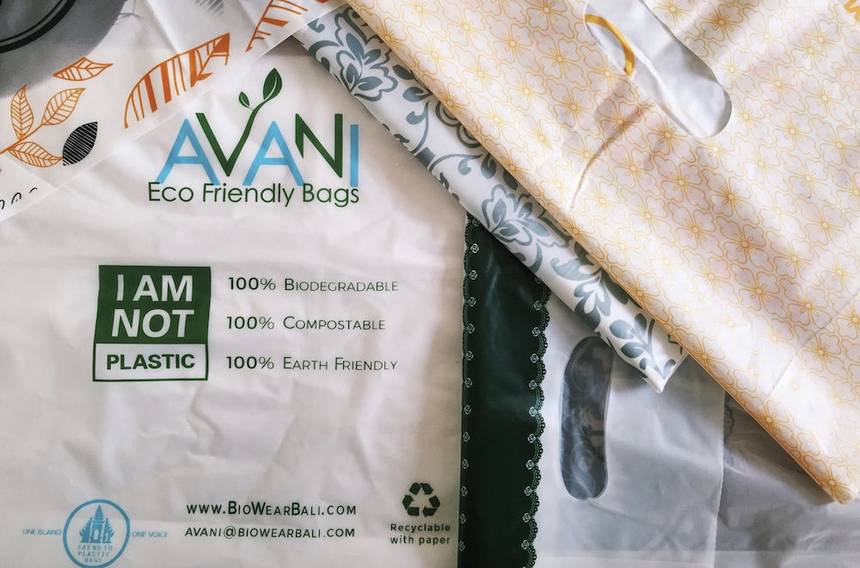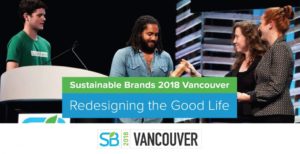This company from Bali chose to address plastic pollution through better design, rather than waiting for a behavioral shift in consumers.
Think of Bali and images of pristine, palm tree-lined beaches likely come to mind. Unfortunately, reality is different. Those beaches are no longer pristine; they’re strewn with garbage, most of it plastic that comes either from Bali’s newly commercialized way of life, or from ocean currents that generously deliver foreign trash.
Environmentalists (myself included) talk about needing to change habits, encourage reusables, implement better recycling facilities, and figure out ways of upcycling trash, but these sorts of major lifestyle shifts take a long time. A company in Bali called Avani thinks we can’t waste any more time trying to convince people to act differently; instead, we should try to meet people where they’re at, by designing a better product that does not require a significant behavioral shift.
Avani has come up with a line of fully biodegradable food products, including takeaway containers, cutlery, straws, and coffee cups, as well as grocery bags and rain ponchos; but it’s the grocery bags that most interest me, since they’re one of the worst culprits when it comes to plastic pollution. More than one million plastic bags are used worldwide each minute and these require hundreds of years to break down, which really means just breaking up into miniscule pieces that will eventually be eaten by animals. In fact, an estimated one million animals die each year from eating plastic bags.
Avani’s bags are made from cassava root starch and other natural resins, using no petroleum products. They biodegrade fully within 3 to 6 months, depending on soil conditions, converting naturally into carbon dioxide and biomass, with no toxic residue. This process can be hurried by dissolving in hot water, softening in cold water, and burning to leave a small amount of ash.
The bags are safe for insects and animals to eat, both terrestrial and marine, and apparently they’re tasty, too, as seen in this video of crayfish and chickens fighting over the edible bags. When dissolved in hot water, Avani claims they’re even safe for humans to drink.
The bag is an intriguing concept, and obviously a much better option than the non-biodegradable plastics currently in use. I am uncomfortable, however, with Avani’s statement that users “can discard them with a clear conscience.” Despite the company’s innovation, I still maintain that a shift away from disposablesdesperately needs to happen, and I wouldn’t want a sense of complacency to impede that. It’s best to leave no trace at all, whether biodegradable in six months’ time or not.
Source: Tree Hugger




